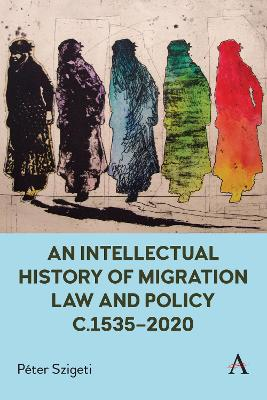
Migration law is a stepchild of constitutional law and international law, existing in a space of little sustained theoretical interest, almost as a general exception to human rights guarantees. Migration law is an area of the law that is not based on the principles of freedom and equality – as opposed to private law, constitutional law and even criminal law. Writing a history, and especially an intellectual history of migration law is therefore a difficult venture: the development of migration law happened in the intellectual margins: through broad discretionary powers granted to state bureaucracies, the development of experimental government policies and minor remarks in international and constitutional legal scholars’ works.
Migration law has evolved in conjunction with the independence of American states that sought to attract settlers and especially after the institution of restrictions to free migration, starting in the 1870s. The background to the restrictions on (im)migration is the existence of two opposing legal traditions: on the one hand, the natural law tradition, which publicized a general, ‘natural’ freedom to move around the globe; on the other hand, the law of perpetual allegiance, according to which one’s political allegiance at birth could never be lawfully renounced. Curiously, both of these traditions were obstacles to the development of modern (im)migration law, which requires constraints on international mobility but at least some possibilities of lawful emigration and change of allegiance.
From exclusionary rules set against a permissive background in the 1870–1914 period, the ‘standard model’ of (im)migration law shifted during and after World War I to permissive exceptions set against an exclusionary background. The third big shift was towards the establishment of temporary labour migration programs after World War II. All of these models radiated outwards from the United States. The fourth, most recent intellectual development has been the shift towards a comprehensive econocentrism since the 1980s, which has transformed both migration and citizenship law.